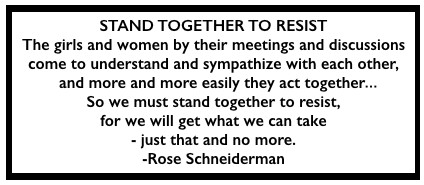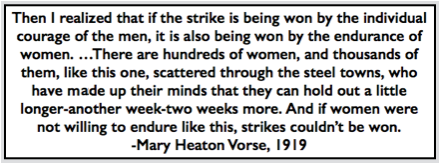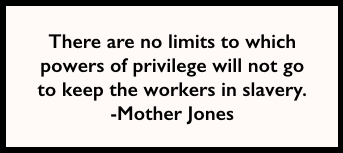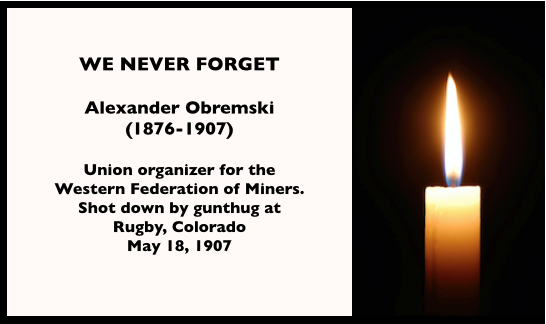 —————
—————
Hellraisers Journal – Sunday August 17, 1913
Duluth, Minnesota – Frank Little Kidnapped by Thugs, Rescued by Strikers
From Solidarity of August 16, 1913:
 —————
—————
Hellraisers Journal – Sunday August 17, 1913
Duluth, Minnesota – Frank Little Kidnapped by Thugs, Rescued by Strikers
From Solidarity of August 16, 1913:
 —————
—————
Hellraisers Journal – Sunday February 25, 1912
Lawrence, Massachusetts – Strikers Prepare to Send Children to Philadelphia
From The New York Call of February 24, 1912:
(Special to The Call.)
PHILADELPHIA, Feb. 23.-Great enthusiasm prevailed today at the headquarters of the Socialist party, [on] Arch street, when a telegram was received from Lawrence, Mass., announcing that in response to the request of the local Socialists and unionists, 100 children of the textile strikers were to be sent to this city and would arrive at the Broad street station at 6:30 o’clock tomorrow evening, where they will be received by an enthusiastic crowd and be distributed among the workers who are eager to give them good homes until their parents win the battle at Lawrence.
[Women Pickets Hard to Handle]
LAWRENCE, Mass., Feb. 23.-Josephine Liss, the pretty Polish strikers who was arrested on Wednesday on a charge of assault upon a militiaman, was convicted in police court today and fined $10. At first she refused to pay the fine or to appeal, declaring that she might as well be in jail if she could not have her freedom outside. She finally entered an appeal on advice of her counsel and was held in $100 bonds.
The soldier asserted that the girl had struck him in the face several times. The defendant said that the soldier had sworn at her and insulted her. Acting Judge Advocate Douglas Campbell, who conducted the prosecution, protested to the court that in his opinion it was “cowardly” of the Strike Committee to send out women pickets, because they were hard to handle.
“Let them send out men,” he said “and we will deal with them.”
[Emphasis and photograph added.]
—————
 ———-
———-
Hellraisers Journal – Wednesday January 4, 1911
Chicago, Illinois – Garment Workers Strike Continues, Part II
From the International Socialist Review of January 1911:
BY ROBERT DVORAK
[Part II of II.]
The most admirable and contagious strike meetings were held in thirty-seven various halls in the city and money was pouring in from all parts of the country, with letters of encouragement and promise of further aid when another blow, again from union headquarters, once more nearly demoralized the strikers.
 ———-
———-
Hellraisers Journal – Saturday November 1, 1919
Pittsburgh, Pennsylvania – The Steel Strikers: Courageous Men, Enduring Women
From The Quarry Workers Journal of November 1919:
CONDITIONS AMONG [STEEL] STRIKERS
AS SEEN BY A WOMAN
—–
By Mary Heaton Vorse,
Author of “The Prestons.” Etc.
—–[Part I.]
This week the commissary stores are being opened in all the steel towns. For six weeks the strikers had nothing. They have been living on their savings; some who have had no savings, have existed from hand to mouth, picking up a chance bit of work here and there and being helped out by their friends.
The first strike relief which will have been given will be the groceries given out twice a week from the commissary stores. Not everyone can have these groceries. They are for those who are starving or on the edge of want, for it would be unthinkable at this stage of organized labor that any one should be forced to scab by hunger.
You do not need much imagination to understand what endurance it has taken on the part of the rank and file to stay out on strike for six weeks without strike benefit or relief. It is going to take even more endurance from now on, when the narrow line will have to be drawn between those actually in want and those nearly in want.
Yesterday I saw how that was being done. When a striker applies for re lief, one of the strike committee goes around to talk the matter over with the family. I went out in Pittsburgh with a Polish fellow-worker who was going out to make such visits of investigation.
We had some difficulty in finding the house where the strikers live. We went down back alleys, past refuse dumps that seemed as venerable as the dilapidated meeting house on the corner. Like everything else in this neighborhood, it was falling to pieces. The paint had scaled from its pillars, but it spoke of a former day before all the mild red brick of the houses had been defiled with the grime soot, and when the well to do, comfortable families lived a family in a house, instead of a family in a room.
 ———-
———-
Hellraisers Journal – Saturday September 4, 1909
“The Strikes in Pennsylvania” by Louis Duchez, Part II
From the International Socialist Review of September 1909:
—–
[Steel Trust Bulls and Pennsylvania Cossacks]
The steel trust “bulls” and “Pennsylvania Cossacks” were rushed in by the hundreds to club the laborers to death. One poor Hungarian while on the run was shot twenty-four times in the back. Comrade J. W. Slayton has the coat and every bullet hole shows up. The victim is lying in the hospital at the point of death. Another one, an Italian, looked through a knot hole in the fence surrounding the company’s property and two “bulls” ran out with drawn revolvers. One of them kept him covered while the other beat him so badly that he had to be dragged away by his fellow strikers and carried to the hospital. It would take volumes to relate in all its detail the brutality and boldness and lawlessness of the Pressed Steel Car Company.
It is no wonder that the country was aroused over the matter. No one with human feeling and a cent to give could refrain from offering it to the poor, starving men and children and sick women, who were treated a thousands times worse than the serfs of the Middle Ages or the black chattel slaves of the South.
In Butler the strikers were treated about the same as in McKees Rocks. Before the “Cossacks” came all was quiet, aside from the fact that the company “bulls” did everything to start a riot.
When the “Cossacks” came into town, naturally, the striking men and their families would crowd along the main streets. Hundreds of them got out in the middle of the streets of the little village of Lyndora, the Standard Steel Car Company’s town, and the mounted constabulary rushed into them without warning.
 ———-
———-
Hellraisers Journal – Friday September 3, 1909
“The Strikes in Pennsylvania” by Louis Duchez, Part I
From the International Socialist Review of September 1909:
T is impossible to treat this subject fully within the space allowed. The writer will simply present a few of the more important facts gleaned from a study of conditions as they exist at McKees Rocks, Butler and New Castle.
At McKees Rocks fifty riveters of the “erection department” of the Pressed Steel Car Company’s plant came out on strike. The others remained at work. Half of those fifty returned the next day—the other half were discharged. The following day one-third of the force in the “passenger car department” walked out and they returned to work twenty-four hours later. About half of those were “fired.” On the third day half of the force of the “Pennsylvania porch department” walked out.
There can be no democracy in this world
so long as industrial workers have to beg to live.
-Mother Jones
Hellraisers Journal, Thursday September 20, 1917
Mother Jones News for August, Part I: “Fire Eater” Speaks
From the The St. Louis Star of August 23, 1917:
Link up in one socialist company;
Evil must perish!
Only together and united!
Long live the Western Federation of Miners!
-Alex Obremski

In 1907, Alexander Obremski was a union organizer for the Western Federation of Miners, working in the very dangerous field of the Trinidad area of southern Colorado. The field was considered to be so dangerous that organizers took the precaution of traveling in pairs.
On the evening of May 18, 1907, Brother Obremski was shot down in a saloon in Rugby, Colorado, near Trinidad, by Juan Espinosa, “a Mexican allegedly hired by the Colorado Fuel and Iron Company (CF&I) for this purpose.” [See below.]
A large funeral was held in Trinidad on May 22nd to honor the intrepid union organizer. He was survived by two brothers who lived in Starkville, Colorado.
According to M. E. White who had charge of WFM headquarters in Trinidad:
Much credit is due for the three hundred members initiated here in the last five months, and at Pueblo, to the faithful and diligent work of your organizer, Brother James Peretto, and the late Brother Obremsky who took their lives in their hands in the work of educating the slaves of this district.
SOURCE I
Essays in Colorado History, Issues 5-10
Colorado Historical Society, 1987
(Search with “alex obremski” reveals signature: “Alex. Obremski.”)
https://books.google.com/books?id=_ngjAQAAIAAJ
Note: not available online except in snippet view. By using various search-words, I was able to bring up some relevant information. I will be attempting to track down this source in a library.
Page 55-
Alexander Obremski (1876-1907)
Correspondence from Trinidad, Colorado
Published as “Korespondencje. Trinidad, Colo.” in Robotnik Polski
Hellraisers Journal, Monday November 20, 1916
Pennsylvania Justice: Leslie Marcy on “Law and Order”
From the International Socialist Review:
Hellraisers Journal, Tuesday November 7, 1916
New York, New York – Frank P. Walsh on Bayonne Strike
From The Labor World of November 4, 1916:
BAYONNE TROUBLE FAULT OF OIL CO. SAYS FRANK WALSH
—–
NEW YORK, Nov. 2.-“Wherever there is a big Rockefeller interest, there you find brutal slave driving methods in the treatment of underpaid workers,” declared Frank P. Walsh, chairman of the Committee on Industrial Relations, in New York, at the height of the Bayonne strike.
[Mr. Walsh continued:]
The most dangerous as well as brutal feature of the Rockefeller treatment of labor, is the close control that the Rockefeller concerns gain over the police and other public authorities. With the mayor of Bayonne confessing that he is a hired attorney for the Rockefeller interests, and with the police department using its full force, and hundreds of special deputies [deputized company gunthugs] to beat and kill the revolting strikers, the American public has its latest demonstration of what Rockefellerism means.